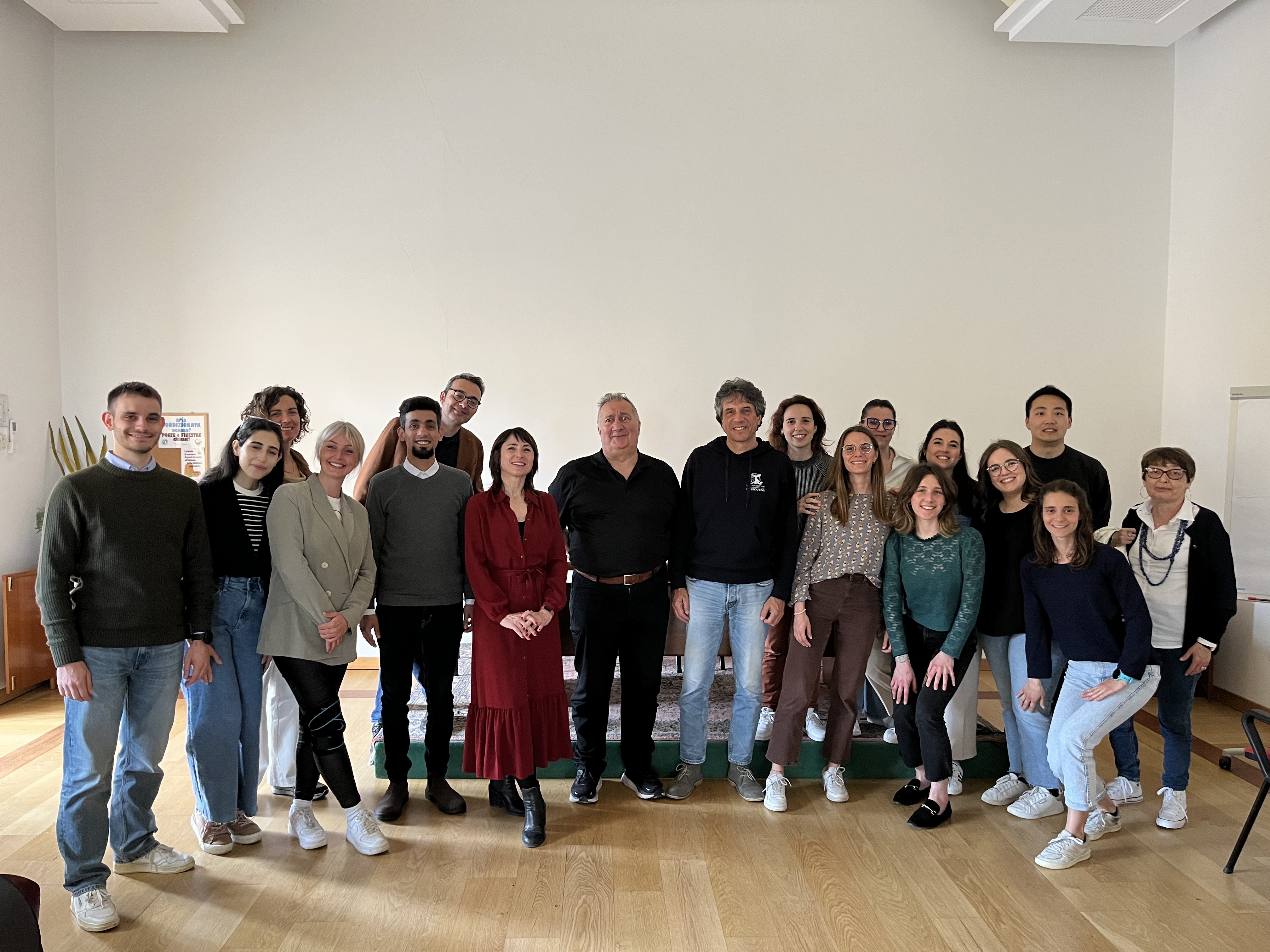
This year’s PhD Training Day wrapped up in Monteortone with a sense of quiet success. The day unfolded through a keynote lecture, thematic tables, year-specific workshops, and a closing dialogue, each offering something different to those who took part. Set in the quiet surroundings of the Euganean Hills, the event felt both focused and open, giving space for meaningful conversations and the chance to step back from the usual academic rhythm.
The morning opened with welcoming words from Prof. Andrea Porcarelli, followed by Prof. Juliana Raffaghelli, who offered a framing that echoed subtly throughout the day: “an intergenerational exchange.” That description resonated not through any single session, but in the quiet ways students from different years: first, second, and third gathered around the same questions with different tools, different concerns, and shared attention.
The keynote by Prof. Sergi Fàbregues (Universitat Oberta de Catalunya) focused on mixed methods research, particularly how qualitative and quantitative approaches can speak to one another more meaningfully. His emphasis on visual and graphic tools opened up a broader discussion about interdisciplinary research and the need to move beyond inherited methodological divides. After the keynote, participants joined thematic tables that explored project management (Prof. Juliana Raffaghelli), participatory and inclusive research (Prof. Simone Visentin), and the intersections of digital humanities, AI, and education (Prof. Marina De Rossi ). These sessions moved easily between structure and spontaneity, giving participants room to explore ideas and connect them back to their own research.
In the afternoon, attention turned to year-specific workshops, each one designed to respond to the needs of researchers at different stages. First-year PhD students worked, each one designed to respond to the needs of researchers at different stages. First-year PhD students worked with Prof. Sara Serbati on research design and methodological structure. Second-years focused on academic writing and research communication with Prof. Ottavia Trevisan. Third-year candidates met with representatives from the University’s International Research Office to discuss postdoctoral funding and academic opportunities across Europe.
For many participants, these sessions offered not only practical guidance but also the chance to step back and reframe their own research paths. As one first-year PhD student, Sarah Schmidt, reflected: “Learning more about the different research paradigms and being able to apply different perspectives on my personal research project was not only helpful but also very inspiring. It was great hearing the opinions of different professors.”
That sense of momentum carried throughout the day. Silvia Stocco, one of the organizing committee members, remarked: ”  It was really satisfying to see how well the sessions connected with one another. You could feel ideas building throughout the day, even across different formats.”
It was really satisfying to see how well the sessions connected with one another. You could feel ideas building throughout the day, even across different formats.”
The day closed with a session chaired by Prof. Raffaghelli, in conversation with Prof. Daniele Morselli (University of Bolzano). Drawing on his own academic path—spanning Italy, the United States, and Finland—Prof. Morselli offered a grounded view of life after the PhD. Rather than offering a roadmap, he spoke with candor about adaptation, openness, and the value of taking intellectual risks across borders. “Academic mobility is a transformative force,” he said. “From Helsinki to Ohio, each context has reshaped my thinking, enriched my teaching, and deepened my belief that true innovation in education emerges at the intersection of cultures.”
Reflecting on the day, Prof. Juliana Raffaghelli shared: “It was a huge pleasure to team up with an efficient and enthusiastic group of PhD researchers who, through their questions, drove me to focus on a main, relevant question for us as supervisors and teachers: How can we provide support to their development as talented young people into successful academics? We shared beautiful sessions where we explored what it takes to build an academic career—not just in terms of research, but also logistics, project management, relationships, networking, and international opportunities. It was a chance to mutually learn about who we are as a research community.”
The event was made possible thanks to the brilliant work of the organizing committee: Giulia Elardo, Monica Gottardo, Silvia Stocco, and Paola Zoroaster, with the generous support of Prof. Juliana Raffaghelli and Prof. Andrea Porcarelli, coordinators of the PhD program and the Department of Philosophy, Sociology, Education and Applied Psychology (FISPPA).
As the conversations continue beyond Monteortone, we look forward to returning next year with new questions, renewed energy, and the same commitment to growing together as a research community.
Bakhtawar Khosa